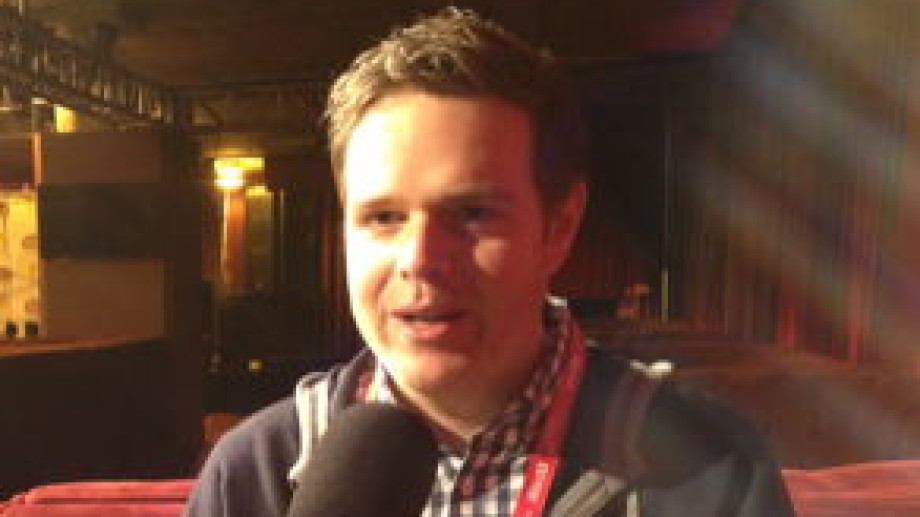
Director Andrew Bujalski discussing Computer Chess.
Listen to our fifth podcast from Sundance right here or subscribe for daily updates on iTunes!
The first weekend of the Sundance Film Festival begs the question: Would you like your cider with or without rum? Through the fog of more than 300 events and parties, it can be hard to keep your eye on the film-watching prize. In the fifth episode of Film Society’s Daily Buzz podcast, we grapple with the issues posed by one documentary (After Tiller) and two narratives (Escape from Tommorrow), discuss festival sales with John Sloss, and more.
Ten years after the success of his indie comedy Funny Ha Ha, director Andrew Bujalski looks at a digital game through an analog lens in Computer Chess. Using cameras from 1969 and a book from the 1980s, Bujalski asks if computer intelligence is really intelligence and how digitization has changed the meaning of the word.
“I’m a terrible chess player, but I started reading a book written in the 80s about chess-playing and computer chess, which started to plant images in my head about this funny little world,” Bujalski explained during his Daily Buzz interview. “As I worked on it more and more I delved into my own childhood memories of computers coming into our lives. It was both very exciting to a young child and scary, in that I’m still intimidated by digitization of our world.”
Bujalski began his film without any concern over its commercial success, but wanted to tell a story intutively from start to finish. Computer Chess does just that in its story of a few geniuses trying to create the perfect chess program.

Randy Moore discussing Escape from Tomorrow. Photo: Eugene Hernandez
Entering our childhood psyches even further is director Randy Moore's Escape from Tomorrow, about family man Jim White, who has just lost his job but curbs the bad news by taking his family to an amusement park. Sparking a legal debate about fair use (the film was shot without permission on a Canon 5D inside Walt Disney World), Escape from Tomorrow is much more than its surrounding controversy (which you can read more about here).
“Disney is in everyone’s DNA now. Even if you try to shelter your kids from it, it’s impossible. It’s everywhere you look. But on a more personal note, my father moved to Orlando after my parent’s separated and I spent all my time going to that park,” explained Moore. “The emotions that I felt being there and my relationship with my father merged together … I just wanted to write from the heart and not think about any implications, which may have been foolhardy, but it was the story that just came out.”
In the film, Jim seeks distractions by following around two teenage girls, which begins innocently enough, but morphs into creepy obsession and blurs the line between fantasy and reality. Moore explains his emotional ties to the park and how childhood memory and current reality were blurred for him as well.
“The father and the park are symbiotic because I can’t separate my father from Disney World. When I went back with my own kids the space that was so magical and so wonderful started to change because I saw stuff that I didn’t pick up on before: Parents having nervous breakdowns trying to calm their kids, fathers that looked miserable,” explained Moore. “It became a different experience. I tried to link the two and go back to what it felt like with my father.”
Moore has not spoken to his father in a long time and felt like the film was a strange sort of message to him. Escape from Tomorrow, although deeply personal for Moore, is also a strange sort of message to his audience about emotional connections to space and the surrogate for intimacy technology provides.
Guests:
Festival Hot Topics:
Kim Voynar – Movie City News
Chris Ryan – Oceanside Entertainment
Interview: Computer Chess
Andrew Bujalski – Director
Interview: Escape from Tomorrow
Randy Moore – Director
Interview: After Tiller
Martha Shane – Director
Lana Wilson – Director
Sales Agent:
John Sloss – Sloss Law



